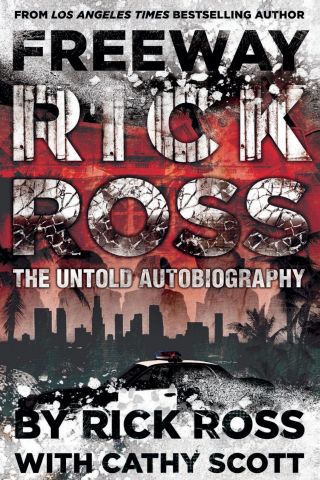Addiction
One-Time Drug Kingpin Freeway Rick Ross Pens Tell-All Book
The former dealer shares his story and advises youth not to follow in his steps
Posted July 1, 2014

Working on a variety of books as a crime writer, I have the opportunity to talk with people on both sides of cases.
When it came to the story of Freeway Rick Ross, co-writing his autobiography meant almost daily interviews with Rick, his family, his homeboys, and poring over court documents, police reports and newspaper articles as we pieced together his life story.
What fascinated me was the criminal drug case and the evidence used by federal prosecutors that sent him to prison for life on a non-violent drug charge.
In one of the biggest narcotics busts in U.S. history, Ross’s multi-million dollar drug ring that was linked to members of the CIA was a part of the Contra scandal. Ross was caught a few years after he’d stopped dealing drugs.
He was taken down during a sting operation where he was encouraged to do one last large drug purchase with his former supplier, who had, unbeknownst to Ross, been working undercover for the feds. The elaborate sting ended in Ross's arrest and conviction, and he was sent to the pen to serve out the life sentence.
As it turned out, Ross was double charged by a federal judge. He realized the error, but his defense attorney didn’t agree. So, while in prison, an inmate made flash cards and Ross soon learned the basics of reading and writing, something that eluded him throughout his school years. He increased his new skill by reading newspapers and researching the law in the prison library.
A new attorney filed an appeal on the double jeopardy argument, an appellate judge agreed, and Ross’s sentence was reduced from life to 20 years.
Upon his release from federal custody in 2010, Ross began speaking to high school and university students—which he continues doing today—about how to make better choices than he made. He remains on parole until 2016.
In high school, Ross was a star tennis player and his coach helped set him up for a potential university scholarship. But once the coach learned Ross was illiterate, all hopes were dashed of him becoming the next Arthur Ashe.
Given the time and circumstances—growing up in poverty in South Central Los Angeles in the 1960s '70s and going through the school system only to emerge illiterate—Ross felt he had no other options. Once he was introduced to cocaine, he saw it as a way to earn a living. He found he was good at sales, and his street business took off.
And while being raised in the ghetto and not being able to read and write are not excuses for the damage Ross caused his community by supplying crack cocaine, it is an explanation as to how he came to be a drug kingpin and how he unwittingly became involved in the Contra scandal.
In his autobiography, Ross does not gloss over his past. He takes ownership of his actions.
“I made mistakes,” he said. “I hope people recognize this as a second chance.”
After reading up on his case, including court documents and newspaper reports, I agreed to write his story with him. It is titled Freeway Rick Ross: The Untold Autobiography. It is a behind-the-scenes look at how it all went down—the good and the bad.


